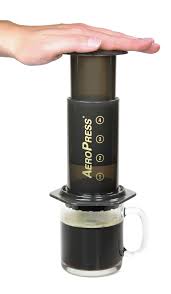What matters to me?

I asked members of a DEEP group recently if they could answer this question? Or if anyone in Health care had ever asked them.
Responses were predictable. No, no one ever asked them what mattered to them?
Me neither. Never.
But nor did they understand why it would matter when they’re talking to a Dementia Nurse or their GP. It was as if they were embarrassed to talk about those tiny little things in their lives. Why would they take up a professional’s time with these little details. They’re just personal to me.
Yes and no.
We may not think any of this matters at the moment. We get pills, we get pep talks, we are told to avoid risks. What’s a care plan got to do with me, I just live. And get on with it.
But wait a moment.
How many people have been given drugs which make them feel awful? I certainly have…blood pressure meds that debilitate me for hours, and dear old donepezil, which makes me feel so bad I have to lie down all day…if I take it in the morning.
Did anyone offer me a choice about these? Well yes, to a point, but not with any discussion of how they might debilitate me. And how to get round that.
I prefer to have higher blood pressure in the day so I can carry on living as I wish, but it’s taken quite a long time to get to this. Because I and medical staff did not give any real weight or thought to what matters to me.

Care plans, if they exist, are just bits of a screen (print) that include our diseases, medications, and medical history. In other words, it’s our doctor’s or our nurse’s record for their use. Very useful if I’m admitted as an emergency, but useless for helping me to live as I choose.
Apparently NHS data show that 85% of Patients with long term conditions have care plans.
That’s bollocks, pure and simple. They are not care plans. Just lists.
So let’s start again.
Do we have shared care plans which we have co-designed with the medical and social care staff we work with?
Nah.
What should a care plan be?

A plan for how I want to live (and die), now and in the future.
Who is it for?
Those who look after me when I am no longer able to. And those who look after me now, when I want my life to continue as I choose.
Every health or social care worker who provides support or treatment should read it and be able to contribute to it.
And I should own it and carry it with me, or give access to it if it’s stored somewhere, virtually or on paper.
This stuff is not new. But it’s not understood and applied in practice.
Have a look at this short cartoon, one of several put up on Youtube by Helen Sanderson, about what matters to you.
And here goes with a list of some of the things that I’d put in my plan. Just the ones I can share in public, of course. I do this to make people think about the small things that matter to me, that professionals cannot know unless they ask and take time to find out.
They make the difference between living as I choose or just existing; being positive even when feeling ill, or feeling hopeless and helpless. Going to bed thinking it’s been a worthwhile day. And getting up with an inner smile.
……..
I like a pint size mug of leaf tea, without milk or sugar. Never tea bags.
I like a shower before going to bed because my feet feel less painful and I sleep better.
I like walking alone with the dog in woods or fields, just being present, with my camera, listening and looking.

I like to sit for an hour with tea and the dog reading the Guardian on line after I’ve got up, before starting the day, with a window to look out of.
I like to cook, and I like strong tastes and spicy food.
I like to sit in the garden with a mug of tea, or beer in the evening, just listening and watching, browsing twitter and email, writing.
I like to wear crocs, sandals or, better still, no shoes.
I like espresso coffee made with an aero press.

I like to make and eat proper, artisan pizza, not shop bought stuff.
I like to walk and garden, and can’t if I take blood pressure pills in the morning.
I like using my brain, thinking, analysing, challenging, and the stimulation of working with (most) nhs staff.
I don’t like overwhelming noise, bright lights, people I don’t know but have to talk to.
I don’t like interruptions or instructions when I’m cooking.
I like two pillows, and untucked sheets over my feet.
I like cutting the grass.
I like spending time with my children and their partners.
I like sowing seeds and growing veg and flowers and trees.
I don’t like having to talk to people when I’m out with the dog.
I don’t like the table being cleared before I finish eating. (I eat slowly.)

I like lots of windows, and the curtains left open at night.
I like being greeted with a smile and a name when I meet Health staff who look after me.
I don’t like being called “luv” or “darling” or “petal” or “mate”. My name is George.
I like to have time to ask questions, to think things through, and to find to a conclusion, before leaving appointments.
I like to tinker in the piano from time to time.
I like to write… letters and blogs, and tweets and things.
I like to choose my company, and to talk about things I’m interested in and know about, not always what someone else says.
I don’t like listening to people with closed minds and uninformed prejudices.
I like eating kidneys and liver. And smoked bacon of course.
I like fresh brown bread, especially if I’ve made it.
……..
I could go on. But you get my drift?
These are what matter to me.
I leave medical care to medics, but I want to make the choices from their advice so I can go on living as I choose.
So always, always ask…
What matters to you?
What matters to me?

You are relentless in saying it as it is George – thank goodness. Our Support Plans do include some of the things that matter to us. Unfortunately, for some people, they remain on file and they never look at them!
LikeLike
Thank you George for another thoughtful Blog saying what so needs to be said. How about WE start writing our own ‘personal plans on living and dying’ that we can carry with us; if nothing else it would ensure that family and friends are truly aware of what we like and don’t like so when moments of disaster strike, they are forewarned? Then when an NHS professional starts to write one we can say -‘I would like this to go with it, please’ firmly!
I am reminded again of the futurepatientblog.com blog of July: https://futurepatientblog.com/2017/07/09/what-matters-matters-how-my-psychiatrist-got-it-right-after-so-many-got-it-wrong/
Wishing you – and everyone – a Christmas and New year of peace, joyful moments, laughter, and understanding for the moments that don’t quite go to plan!
LikeLike
I hear you George from all the way Down Under, Australia. When I Case Managed clients I always tried to make the support and care as client centred as possible. I had a client with a 35 page Care Plan with all the details of what mattered to the client. Tea, served in a tea cup with the handle at an angle that is between 2 and 3 o’oclock. The dressing gown layed out on her bed with the monogram up. etc Food that is very tasty as taste buds don’t work as well.
Wishing you a Merry Christmas and a Joyful New Year with your family.
Kate Lambert, CEO, Daughterly Care
LikeLike
George I love the idea of doing a what matters to me list – and am going to copy it. This is to wish you a very Happy Christmas and to hope that our paths cross again at some Dementia event or another.
LikeLike
yay George; thanks for writing. — Tru
LikeLike